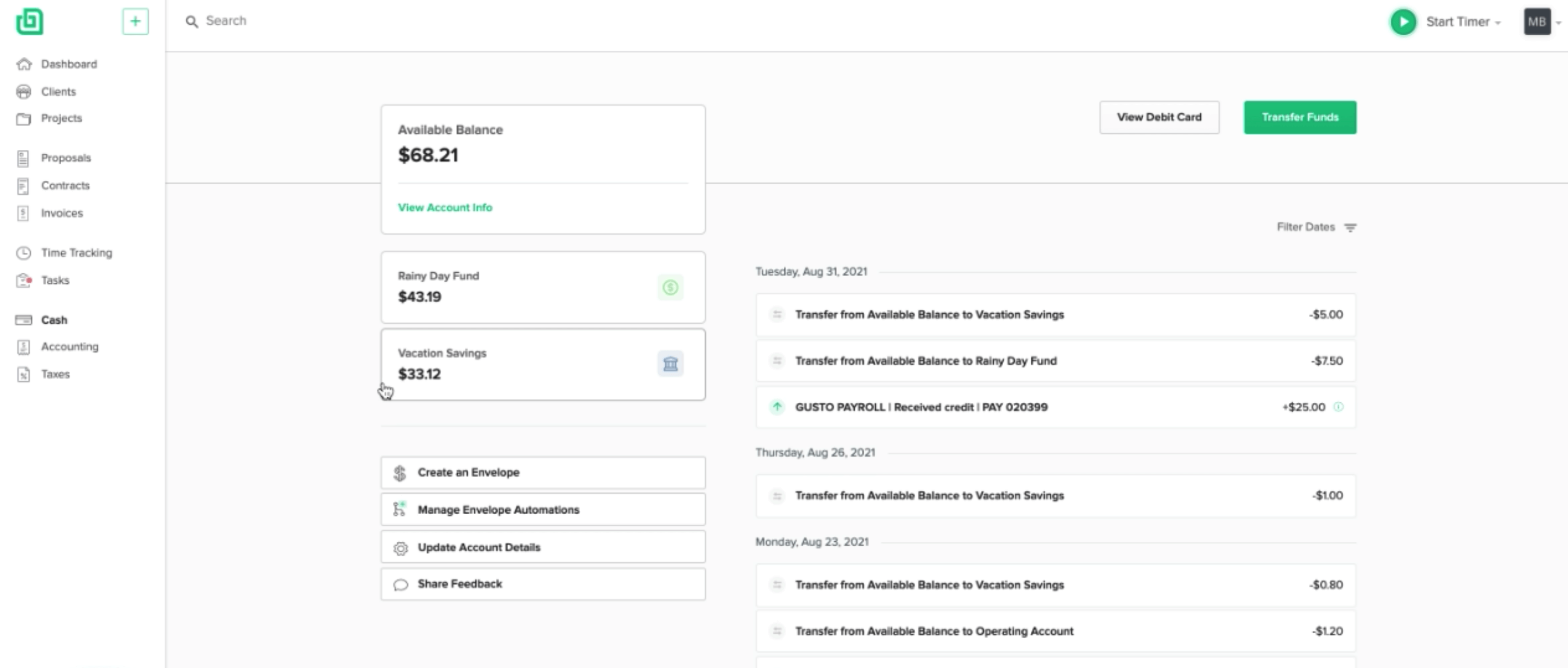Freelancers often wonder if they need a business bank account. While not legally required, having a separate account offers numerous benefits, such as improved financial organization, easier tax filing, and enhanced professionalism. A business bank account helps separate personal and business finances, reducing the risk of errors and ensuring clear financial records. To set up an account, freelancers should consider factors like account fees, features, and banking services that suit their business needs. Ultimately, a business bank account is a strategic move for freelancers aiming to streamline their financial management and project a more professional image to clients.
If you are a business professional or a self-employed person with a solo small business, then you may be wondering when to set up a business bank account - business freelancer-wise. But should you open one - and if so, when should you?
The answer will depend on the type of business that you are running, as well as your preferences and needs. You must consider all the different factors in order to make your choice.
Note: If you want to set up the best bank account for self-employment finances, try Bonsai's business account. There are no hidden fees or pesky monthly minimum requirements. It's easy to set up (no application process, just sign up) and you can create sub-accounts or envelopes to better organize your finances. Open a new account today.
What Is a Business Bank Account?
A business bank account, as its name suggests, is the kind of business account service that you use to conduct your business transactions, such as receiving payments, or paying for your equipment and taxes. A business account is a necessity when you register your business as an LLC or a corporation.
That being said, business accounts should also be used by sole proprietors offering professional services.
When your income level reaches a certain threshold and you accept payments on a regular basis, then your bank may suggest you open a separate business bank account.

Do You Need a Business Bank Account If You're a Freelancer?
If you are a sole proprietor, then the law doesn't require you to separate your personal expenses from your business account. Most freelancers start that way, so if that's your situation, it's not required. Dedicated freelancers will find that a dedicated freelance bank like BlueVine is specifically designed to meet the needs of your freelance home services, construction, barber business or other freelance income streams!
However, while it's not legally required, it is recommended. It will help you separate your business and personal finances for taxes. It should also allow your business to run much smoother while leaving room for business growth.
On the other hand, if you are a freelancer and have a single-member LLC, then the law requires you to open a business account for your LLC.
LLCs have the purpose of reducing personal liability and increasing financial protection. So, if you attach personal accounts there, the requirements may not be met.
Reasons to Set Up a Business Bank Account
Typically, you should set up a business checking account when you want to reap the following benefits:
Legitimacy
When you are starting a business account opening process, you are setting your business on the way towards legitimacy. Basically, you will be able to do business as an authority.
You will no longer be a random freelancer offering services, but an actual legitimate institution providing professional services.
Flexibility
Many online banks will limit your activity when you are using a personal account. For example, while you may be able to accept personal transactions, you may not be able to accept credit card payments or send out invoices in the name of your business.
However, if you choose a business bank account, then those limitations will be lifted. You will be able to allow your business to grow in the way that an actual business should.
Brand Building
If you want to use your business name while providing your services, then you need a business bank account. When you are using the same account you use for your personal finance ordeals, then you may not be able to make a name for your brand.
However, if you go for proper business account, you can build the brand for your small business. This can help improve relationships with vendors and allow you to build a commercial credit score. For all of these to happen, a reputable brand will be needed.
Ease of Payment
When you are self-employed as a business, you are providing services to your clients. And every customer may have their particular way of making a payment. Some may use ACH transfers, others may prefer credit cards, and so on.
As a business owner, you need to be able to cater to the possibilities of your clients. By limiting them, you may actually lose their interest in your service.
If you feel like you are losing revenue because your customers prefer different payment methods, then you may want to try business account with an actual business account.

How to Choose a Business Account
Time is money - especially for a self-employed business owner. So, when you decide that it is finally time to set up a business bank account, you need to find one that caters to your needs.
As you are looking through banks accepting new business account services, search for the following features:
- Unlimited electronic deposits
- Unlimited transactions
- No minimum balance
- No monthly maintenance fees
- Proximity to locations for cash deposits
- Internet banking and mobile app availability
- No ACH, ATM, or hidden fees
- The possibility of a savings account
- The possibility of business financing
- Free visa debit card for freelancers
- Possibility of credit cards
Each business is different in its need, and you might not require all the above-mentioned features from your bank account.
However, once you decide to separate your business finances from your personal ones, the right account can actually help you save money.
Types of Bank Accounts for Freelancers
Depending on the revenue that your small business gets, there are two types of business accounts that you may go for with different banking requirements. These are:
Business Checking Account
A checking account is used by small business owners in order to conduct their business transactions. This is the payroll account, where you will receive payment for your services, or pay for your supplies.
This type of account will offer you access to debit cards that you may use to withdraw money from the ATM.
A checking account will not have daily minimum business checking requirements, but some may yield interest if you have a balance up to a certain amount.
Business Savings Account
Once your income begins to grow, you may want to consider opening savings accounts as well. Typically, these accounts bear interest - so, you will be able to make your money grow in the long run.
Depending on the financial institution, you may be able to open a separate bank account for saving goals such as taxes or business equipment. One example would be Bonsai's business account's envelope budgeting system that allows you to set money aside for various business expenses.
Documents Needed for a Bank Account for Business
Usually, financial institutions will require a set of documentation in order for you to open a business bank account. If you already have the following documents, then it might be a sign that you should set up a free business checking account:
- Full name
- Unique Taxpayer Reference (UTR) Number or Employer Identification Number (EIN) (some banks don't require an EIN to open a business account)
- Registered business address
- Projected annual turnover
- Business contact details
You need the above documents if you are a sole proprietor. For LLCs and corporations, you may need extra documentation, depending on the bank that you are going for.
The application process takes around 10-15 minutes, once you submit the documents. However, it is the processing of the account that usually takes the most time.
Depending on the bank that you go for, it can take from one week to up to four weeks until the account is approved. This is why you need to read the requirements of the bank that you want to use.
Based on the bank, the business account itself may not be an issue - it's all about the time needed for the first deposit to reach your account. Keep both internal and external factors in mind when creating an account.
Personal Bank Account vs. Business Bank Account?
If you have a sole proprietorship and your business has not been incorporated (LLC, C-corp, or S-corp), then you may use a personal account to conduct your business finances.
That being said, if your business took speed and you have incorporated your business, then you may want to consider using a business bank account instead of a personal account. Read more about a business vs personal account here.
This way, you will be able to protect yourself from being personally liable - you will also protect the integrity of your company.
Bonsai's business account: Best Bank Account for Professional Services Firms
Choosing the best business checking accounts might not be that simple. There are many that you may consider using, but the Bonsai's business account account is one of the most popular options. It features a number of automated functions that streamline your payment process.
Bonsai's business account allows you to connect your account to a physical debit card, a virtual card, and Apple Pay as well. It also helps you with your accounting and money management problems, as it allows you to create envelopes.

Envelopes are like sub-accounts for your business checking account. In the end, it solves both your checking issue and the savings one.
Not to mention a new business account is guaranteed--so no applications or credit checks. Bonsai is a free business account, which means that you will not have to pay transaction fees, monthly fees, or maintain a certain monthly balance. If you have just started your business and still have a relatively low cash flow, then Bonsai will help you out. Check out the best small business bank account here.
The Bottom Line
Business accounts are required by the law when you start a certain type of business, but that mostly depends on your status. That being said, even if the law does not require it, you should be set up the moment you see regular revenue.
Plus, it will help you keep your finances organized - something that can be quite difficult if you use your personal banking account for this purpose. So, we hope that now you know when to set up business bank accounts as a sole prop business owner.







